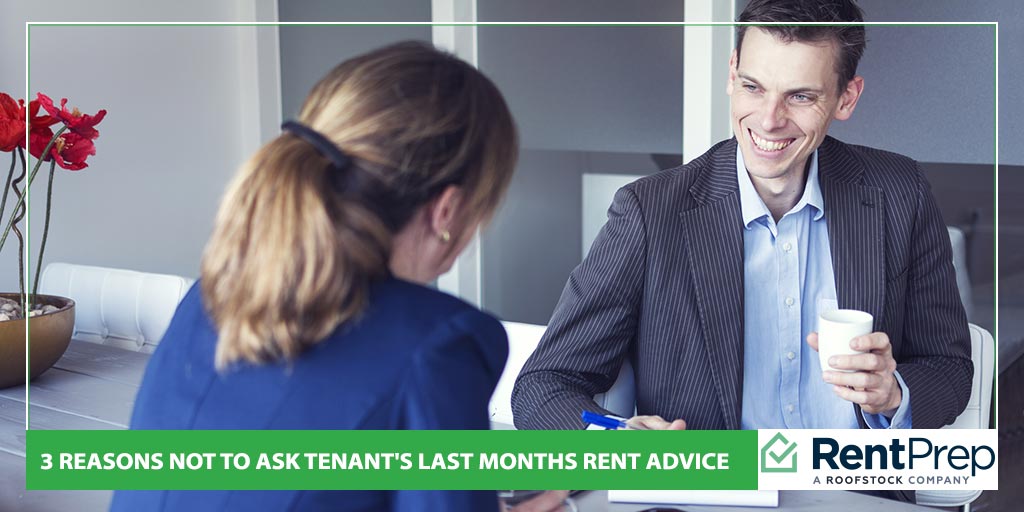
Many landlords ask that a tenant pay rent for the first and last months of the tenancy when the lease is signed or an agreement to rent the property is made. Asking for the first month’s rent payment makes sense: it covers the current or upcoming month, the first month the tenant will actually be occupying the property.
Collecting the last month’s rent payment also seems to make sense to many landlords: it provides a sense of security, especially if the landlord is concerned that the tenant will skip out without paying for the final month.
How does last month’s rent work?

Last month’s rent is typically charged upfront upon the tenant signing the lease. This is an added protection for landlords because if a tenant plans to leave after the lease they may try to not pay the last month’s rent. In these situations, you do not want to use the security deposit for this as that should be saved for any potential damages.
But is it a good idea? Below is where we will explain 3 reasons why you shouldn’t ask for the last month’s rent up front.
First and Last Month’s Rent – 3 Reason to Not Ask for Last Month
1. It may not cover the rent due when the last month rolls around
Suppose you agree to rent a space to a tenant in 2013 for $1,000 per month. In 2014, you and the tenant agree to a $100 per month increase in rent. In 2015, you and the tenant agree to another $100 per month increase. By the end of 2015, the agreed-upon monthly rent amount is $1,200 per month – but the last month’s rent payment you collected in 2013 is still only $1,000.
Can you ask for an increase in the last month’s rent amount?
Yes, but only if you do it when you and the tenant agree to increase the rent. If you wait until the tenant’s last month in the space, it is too late to ask for the increase – and you are out the difference.
2. It cannot be used for anything but rent
Suppose that you arrange with a tenant to collect the last month’s rent, but not a security deposit. Near the end of the lease period, your tenant gives proper notice that he or she is moving out. Your tenant also pays rent for the final month. Upon entering the unit, you realize that there is significant damage that needs extensive repair – but all you have is the last month’s rent payment.
Can you use the last month’s rent to pay for repairs?
 In most states, the answer is no: last month’s rent can only be used toward unpaid rent, not toward repairs. By contrast, asking for a security deposit equal to the maximum allowed in your state gives you the flexibility to apply those funds toward repairs, unpaid rent, or both, depending on the situation a particular tenant has left you in.
In most states, the answer is no: last month’s rent can only be used toward unpaid rent, not toward repairs. By contrast, asking for a security deposit equal to the maximum allowed in your state gives you the flexibility to apply those funds toward repairs, unpaid rent, or both, depending on the situation a particular tenant has left you in.
3. You may owe interest to your tenant
Some states require landlords to pay their tenants interest on any funds for last month’s rent that are held by the landlord. For instance, in Massachusetts, landlords must pay interest of 5 percent per year or the amount actually earned on the money, whichever is less. Keeping track of your own accounting is slightly easier if you do not ask for last month’s rent in advance.
Note: This article is provided for informational purposes only. No information provided in this article should be considered legal advice. If you have legal questions, please consult an attorney who is licensed to practice law in your area.
Photo credit: ACC

